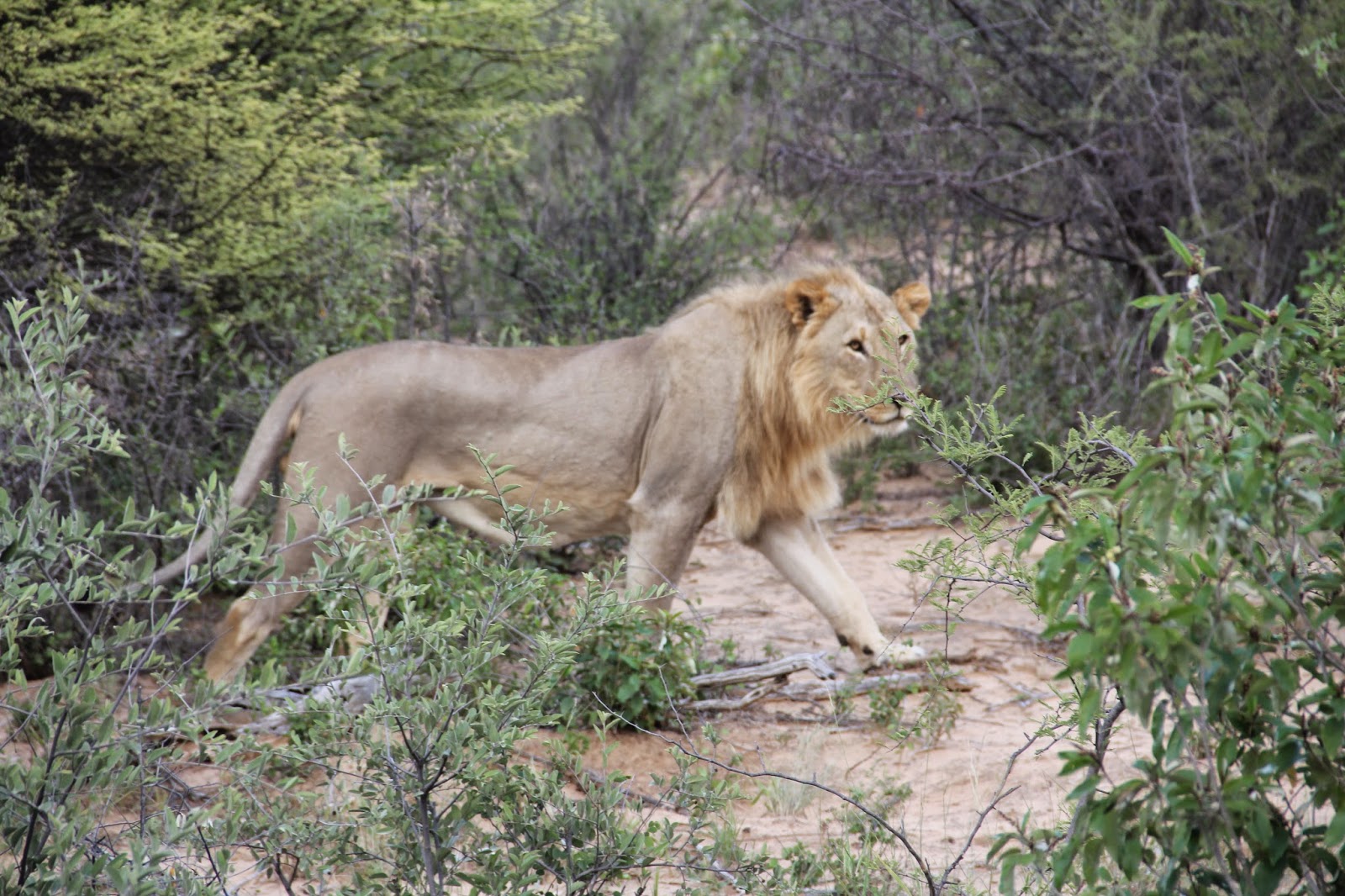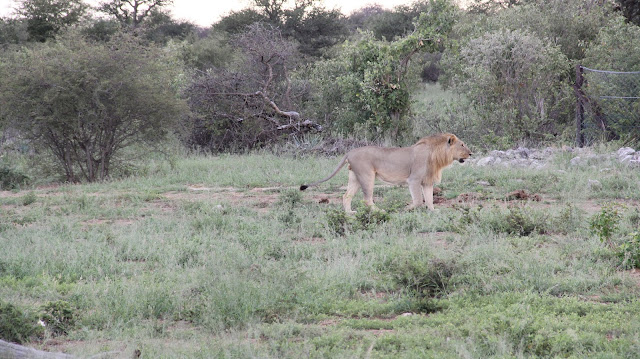Marabou Stork
Kori Bustard. The largest flying bird native to Africa.
Lilac-breasted Roller
Joel's report:
Last week the MV Explorer stopped in Walvis Bay, Namibia for
five days. To reduce the amount of time you have to read my atrocious writing I
will leave day one up to my Father and only write about our most excellent
safari on days 2-5.
Day 2: To fully give you an idea of what happens you will
need some background information. Onboard the MV Explorer in the morning that
you would like laundry done you sort it and put it in bags in the hall for the
cabin steward to collect. Typically the laundry is returned the next day and
all is right with the world. We needed laundry done for our safari so we put it
out so that it would come back the day we left, but it didn’t. This posed many
issued considering that my dearest brother, will only wear three different
outfits. Eventually we had to get our not yet washed laundry back so that will
would have clothes. I don’t really know why I told you about this whole saga
other that the fact that you might find it slightly amusing and I’m writing
this as a homeschool assignment and I want to take up more time. So anyway
the rest of the day we drove and drove and drove to Moukuti Lodge roughly a kilometer outside Etosha National Park. All this driving included a 2 and a
half hour detour around a truck that had jackknifed and was blocking the road.
We got to the lodge at ten o’clock pm.
Day 3: We entered the park with our guide Hazel and our
driver Rasta (from the Czech Republic) and 10 students. Within five minutes we
saw giraffes which was very exciting. I had assumed that it would be difficult
to see animals but we were constantly seeing Zebras, Wildebeests, Springbok,
Kudus, Dik Diks, and many others animals including a lot of fancy birds. I’m
counting on my Dad to use his record of all the animals that we saw to fill you
in all of the birds and the interesting facts that Hazel told him. Hazel did a
quick survey to see which animal we would like to see the most and the majority
vote were lions. We then drove to a water hole where lions had been spotted. We
didn’t see lions but we did see 4 Elephants. They were massive and had huge
ears. It was so cool! We also saw three Hyenas walking and it was at that
moment that I realized that the Lion king could be real! On our way out of the
park was the greatest animal siting of the day. We were looking at more
giraffes because giraffes are phenomenal animals when Hazel got a call from the
guide of the other bus telling us to hurry down the road. Rasta put the pedal
to the metal and soon we saw a black rhino. Black rhinos are being poached for
their horns and are greatly endangered. I felt very privileged to have been
able to view this majestic beast.
Day 4: We left at a bright and early 7 AM. We had hoped that
animals would be more active in the morning but the only new animals we saw
were some legit warthogs. Unfortunately Etosha National Park does not have any
Meerkats which almost ruined the whole Lion King vibe. We returned to the lodge
and ate lunch and then decided to go on the optional afternoon safari. Hazel had
decided that because we had seen neither lions, cheetahs or leopards that this
would be a cat hunt. The concentration of lion sightings in the park had been
around the waterhole where we had seen elephants and another waterhole about 5
miles away by my Mom’s estimate. The students on our bus even set up a system
of watching to maximize our chances of a siting. We waited at one water hole
with no success whatsoever, so we started to the next waterhole. So there we
are driving down the road looking for lions and then we see a bunch of cars
slowly crawling. As we approached the group of cars before any of us could see
an animal Hazel tells us “it’s a lion,” and it was! It was a lone teenage male
who was on his own probably on his way to the waterhole we were going to. We
watched him stalk through the brush for another fifteen minutes and by then we
knew he was going to the waterhole so we drove there to wait. Sure enough soon
we see our lion come out of the bush marking his territory and sniffing the air
as he goes. The lion walks up to the water hole, takes a drink, growls, and
sits down. Hazel thought he was waiting for his pride but tragically the park
closed at sunset which was pretty soon. Rasta sped down the road and we made it
out of the park with five minutes to spare. The lion was one of the coolest
things I have ever seen and I’m so glad I had an opportunity to see one in the
wild.
Day 5: We drove back to the ship.
THE END


































































No comments:
Post a Comment